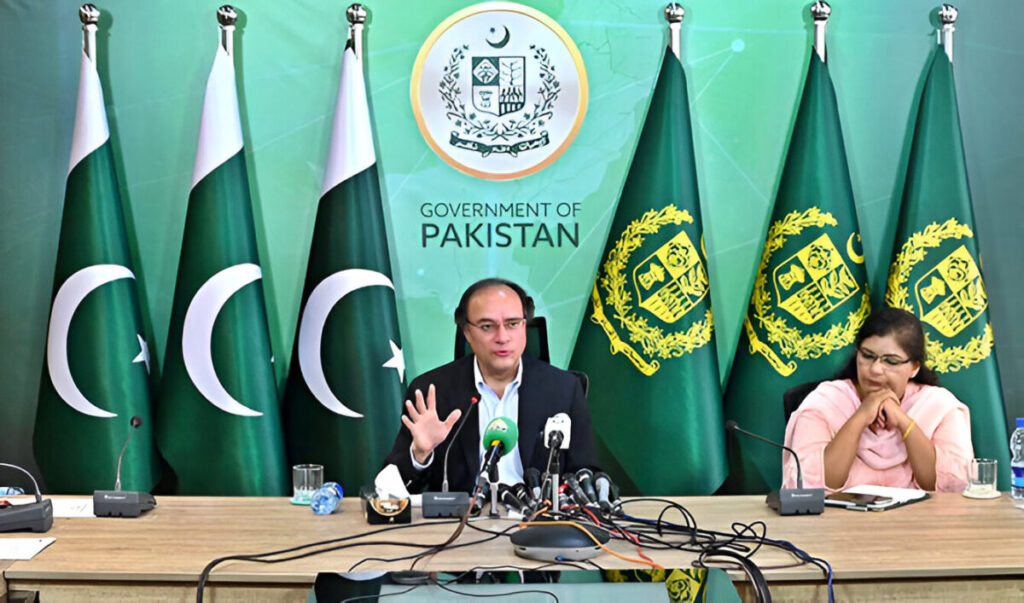Islamabad, Aug 30: Finance Minister Muhammad Aurangzeb announced on Thursday that new policy measures would be introduced by the federal government to expedite investment procedures and offer incentives to foreign investors. As Pakistan battles to combat a growing militancy issue and meet external financial requirements to receive clearance for a $7 billion IMF bailout loan, the government claims it is dedicated to enhancing the country’s investment climate.
Speaking with international governments and lenders to entice foreign investment as well as looking for loan rollovers, Aurangzeb stated last month that Pakistan will concentrate on satisfying its external finance demands. Additionally, the government is attempting to concentrate on more environmentally friendly sources of outside funding, like direct investment and climate finance.
Last month, Pakistan and the IMF came to an agreement for the 37-month financing term. According to the IMF, getting “timely confirmation of necessary financing assurances from Pakistan’s development and bilateral partners” and the executive board’s approval are the only things holding the program up.
A review meeting with representatives from joint venture investment businesses, such as the Pak-Brunei Investment Company Limited and the Saudi-Pak Industrial and Agricultural Investment Company in Islamabad, was presiding over by the finance minister on Thursday.
Aurangzeb acknowledged the vital role joint venture companies like Pak-Brunei Investment Company Limited and Saudi-Pak Industrial and Agricultural Investment Company can play in promoting economic growth and expressed the government’s unwavering commitment to creating an environment that is supportive of private sector investment, according to Radio Pakistan.
“He emphasized how crucial these endeavors are to drawing in foreign direct investment.” The CEO of the Pak-Brunei Investment Company Limited reportedly provided an outline of the company’s portfolio and its main projects in Pakistan, according to state media. The research emphasized the significance of Pak-Brunei Investment Company Limited in fostering economic cooperation between Brunei and Pakistan by encouraging investments in the agricultural and industrial sectors through real estate, financial services, and support for small and medium-sized enterprises.
A presentation was also made by the CEO of Saudi-Pak Industrial and Agricultural Investment Company regarding the company’s main development projects aimed at advancing commerce, digital finance, food security, Islamic financing, and livestock and agriculture in Pakistan.There was also discussion of a number of operational facets of these businesses, such as investment tactics, performance indicators, and major growth-related roadblocks. “Both businesses discussed their successes and difficulties, emphasizing the areas in which policy support is needed to get beyond roadblocks in their respective operational environments. In order to help important sectors, the conversation also covered possible avenues for future investments and partnerships through more government-to-government activities, according to Radio Pakistan.
“The Finance Minister expressed gratitude to both companies and praised the Saudi Arabian Vision 2030 implementation strategies for meeting their goals in a short period of time. It was also emphasized that Pakistan is eager to acquire knowledge of these strategies.”
To encourage further investment, Aurangzeb has met with the leaders of numerous foreign banks and businesses in recent weeks. The purpose of his discussions with top executives from Mashreq Bank and Dubai Islamic Bank last week was to “explore investment opportunities in Pakistan and discuss the economic outlook.”
Aurangzeb stated in July that Pakistan is in discussions with China, Saudi Arabia, and the United Arab Emirates to cover its gross funding needs under the IMF program. This came after Aurangzeb visited China to pursue debt reprofiling for the energy industry. In addition to funding from the IMF, Pakistan has previously been assisted in meeting its external financing needs through loan rollovers or disbursements from its steadfast friends.
Fears of growing inflation and potential tax increases among Pakistan’s poor and middle class have been raised by the IMF’s strict conditions, which include increasing taxes on agricultural profits and power costs.
As Pakistan’s security situation worsens, it can become more difficult to attract foreign investors. Over 53 people were killed on Sunday in a series of coordinated strikes by separatist militants in the southwest region of Balochistan, including at least 19 troops and police. In recent months, there has also been an increase in attacks around the nation by organizations driven by religion, such as the Pakistan Taliban.
